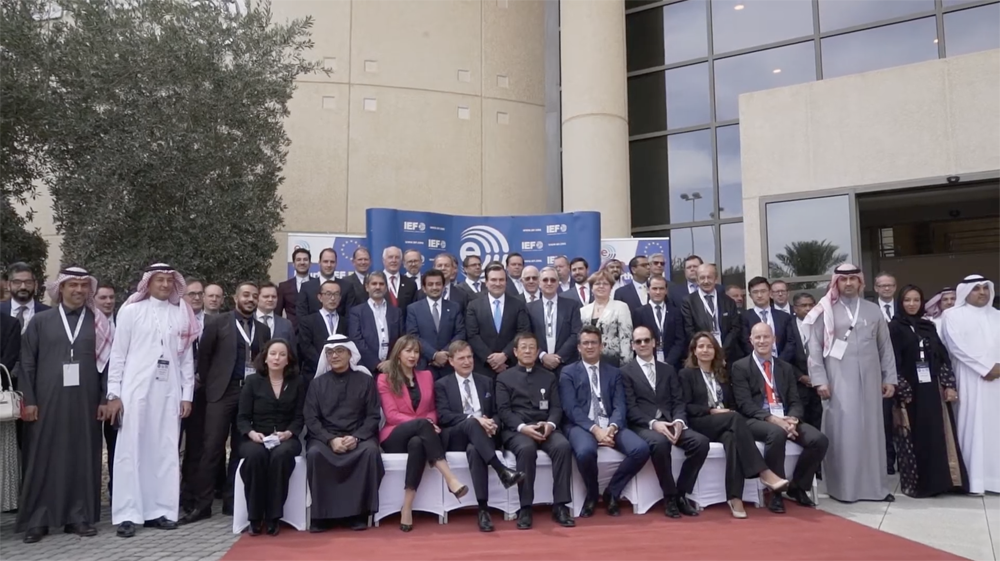Key energy players take advantage of IEF forum
https://arab.news/c5y3k

The International Energy Forum (IEF) this week held three days of meetings in Riyadh. On Tuesday’s opening day, experts discussed energy transition and the role of renewables in the context of the EU; comparing Europe’s approach with those of other regions, particularly the Gulf Cooperation Council economies.
The second day was the highlight, comparing the energy outlooks of the IEA and OPEC. It included a brilliant and very personal address by Saudi Energy Minister Prince Abdul Aziz bin Salman. Prince Abdul Aziz was instrumental in the creation of the IEF, which was formed nearly 20 years ago, when oil consumers and producers were barely on speaking terms and transparency was sorely lacking in the oil and gas sectors. The IEF has provided a neutral forum for discussion ever since then. Its analytical work dealing with data integrity in the upstream sector, or Joint Organizations’ Data Initiative (JODI) for oil and gas, is highly acclaimed for its objective approach. Indeed, many Wall Street analysts use JODI as a reference benchmark.
The highlights of the IEF calendar are the ministerial meetings. In terms of access and possibilities for dialogue, several energy company executives put the usefulness of these meetings on a par with attending the annual meeting of the World Economic Forum in Davos.
The third day was dedicated to a dialogue between the IEF, the International Renewable Energy Agency and the King Abdullah Petroleum Studies and Research Center. The aim was to discuss the role renewables and new technologies play in energy transition. A great deal of emphasis was given to the concept of the circular carbon economy, which is designed to reduce, renew, recycle and remove carbon. It has been presented by Prince Abdul Aziz at several forums and been well received. The IEF gave technical and financial experts an opportunity to discuss the concept at the strategic and technical levels.
In these times of energy transition, the IEF has morphed into an important venue for frank, off-the-record conversations about the direction of the energy sector.
A well-known proverb states, “May you live in interesting times.” But there is some good and some bad about interesting times. Energy transition is the epitome of interesting times. While there is a near-global consensus that the world needs to move to reduce emissions and that we need to keep global warming to a maximum of 1.5 degrees Celsius above pre-industrial levels, the approaches of how to get there differ greatly from country to country and from region to region.
The three days of meetings were held under the Chatham House Rule, which means that the discussions cannot be reported on in detail and cannot be attributed to any speaker or organization. This was very important because it allowed experts to air their views freely without fear or favor. Energy transition is highly charged, politically speaking. The green agenda has taken over the political discourse in many European countries, and certainly at the EU level, with the new commission president’s “European Green Deal.” In many other countries, such as Saudi Arabia, renewables also play a big part in the future of energy policy. Elsewhere, energy companies and policymakers grapple with what it means for them, their societies and their shareholders.
The IEF has morphed into an important venue for frank, off-the-record conversations about the direction of the energy sector.
Cornelia Meyer
There is no one silver bullet to solve the conundrum and provide clean and affordable energy for all. It is important for policymakers, energy companies, the financial community, technologists and academics to discuss these issues in a safe environment. The IEF meetings provided such an environment. It was interesting to see how close many of the major players were in, for instance, forecasting the primary energy demand and supply. At the same time, they were at times far apart in terms of how they wanted to achieve the goal of decarbonizing the economy.
If we are serious about becoming carbon neutral by 2050, while still providing affordable energy for all, we need to convene a broad spectrum of concerned institutions, companies and people and allow them to air their views, as well as canvass a multitude of opinions. The IEF has achieved just that.
- Cornelia Meyer is a business consultant, macro-economist and energy expert. Twitter: @MeyerResources









































